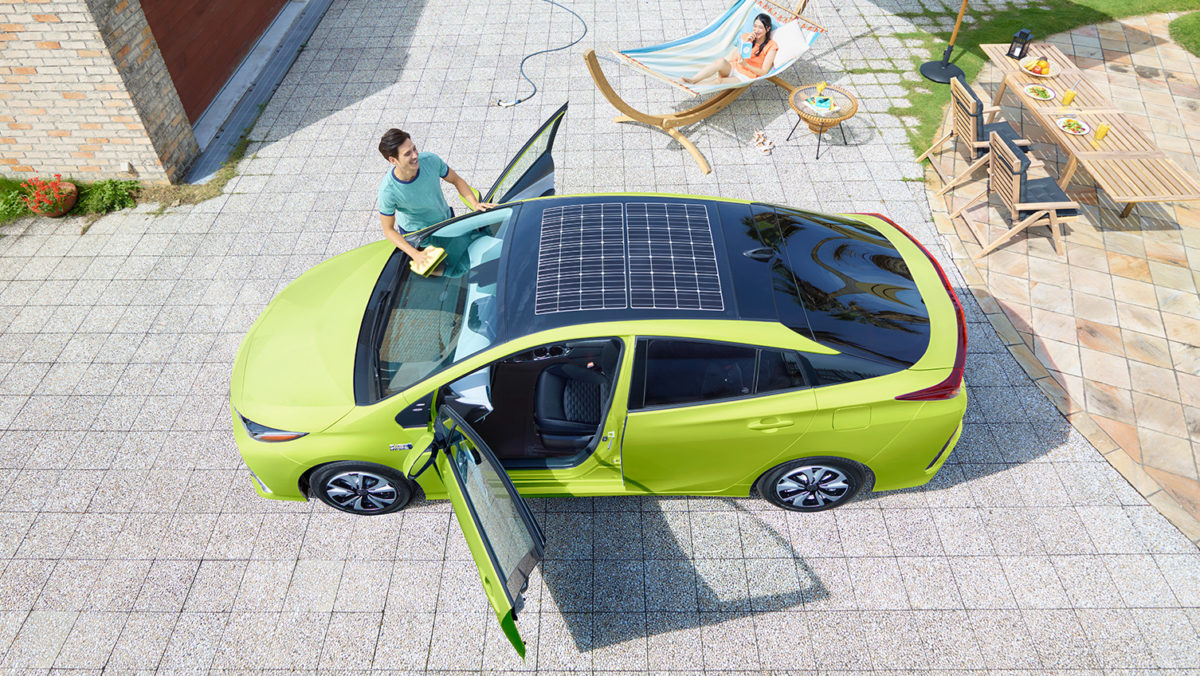The rooftop solar panels recharge the 3.7-volt (24Ah) lithium-ion auxiliary battery while driving to raise hybrid fuel efficiency, but cannot charge the battery to full capacity.
The PV panels also supply power to the traction battery while the vehicle is parked, providing enough of a charge to drive up to a maximum of 6.1 kilometres per day, or an average of 2.9 kilometres, Toyota said in an online statement.
In addition, the solar panels provide electricity for the vehicle’s lights, power windows and air conditioning systems.
The PV-charging option has been in development since 2009, when Toyota enlisted Kyocera to provide 56W modules for its prototypes.
Toyota first announced plans last summer to offer the vehicles in the Japanese and European markets.
The Japanese automaker launched sales throughout Japan last week, with a monthly sales target of 2,500 vehicles Prices range from ¥3.3 million ($29,000) to ¥4.2 million.
Popular content
Toyota hopes to eventually offer the PV-charging option in the US market, once it develops an alternative to the reinforced glass sheeting for the PV cells, which do not meet US standards.
As an electric vehicle, the Prius has a travel range of 68.2 kilometres, or roughly double the range of the previous model, Toyota said.
The company operates 4,200 charging stations throughout Japan, in addition to 14,600 stations run by Nippon Charge Service.
The external electrical power supply of the Prius can also provide household electricity even when the engine is not running — a key feature that will be increasingly incorporated into Home Energy Management Systems (HEMS) in Japan in the years to come.
Last July, troubled Chinese thin-film PV group Hanergy revealed plans to offer four different PV-powered electric vehicle models.
This content is protected by copyright and may not be reused. If you want to cooperate with us and would like to reuse some of our content, please contact: editors@pv-magazine.com.


11 comments
By submitting this form you agree to pv magazine using your data for the purposes of publishing your comment.
Your personal data will only be disclosed or otherwise transmitted to third parties for the purposes of spam filtering or if this is necessary for technical maintenance of the website. Any other transfer to third parties will not take place unless this is justified on the basis of applicable data protection regulations or if pv magazine is legally obliged to do so.
You may revoke this consent at any time with effect for the future, in which case your personal data will be deleted immediately. Otherwise, your data will be deleted if pv magazine has processed your request or the purpose of data storage is fulfilled.
Further information on data privacy can be found in our Data Protection Policy.